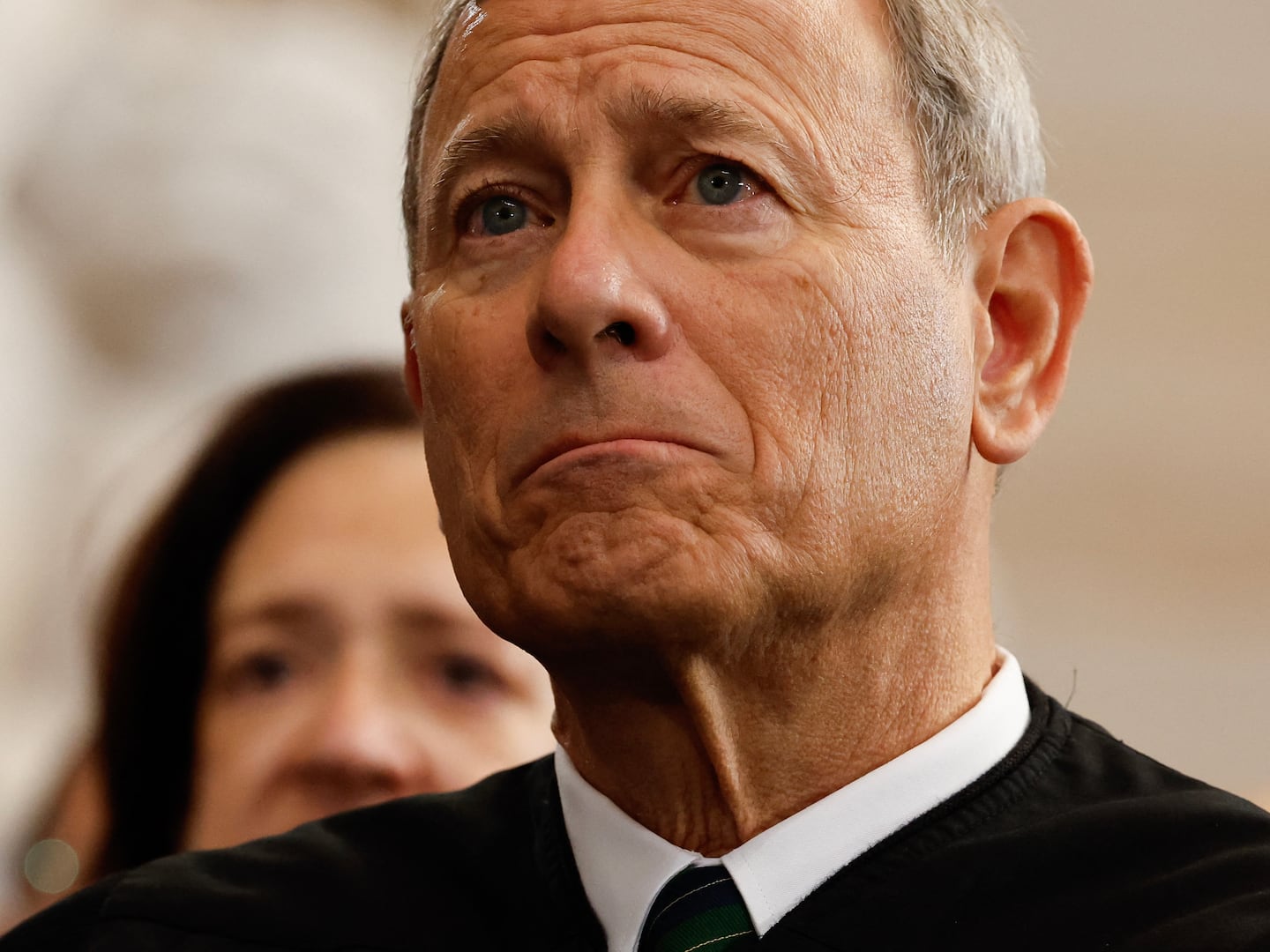
The Power Station studio is hushed; there is a barely audible footfall, then Dylan strikes a single piano key. It is a quiet but stark call to musical order. Mark Knopfler softly, exquisitely picks an acoustic guitar in the background, then joins in; Bob Dylan hits a quick pair of somber E- flat minor chords, sketches two measures of melody, and begins to sing, wearily: “Seen the arrow on the door po-ost, sayin’ this land is condemned.” Twenty years after “A Hard Rain’s A-Gonna Fall,” he has written another of his many songs that traverse appalling sights and sounds. Almost right away, it is obvious that the melody of “Blind Willie McTell” comes from “St. James Infirmary”—the same melody that dominates Blind Willie McTell’s own “The Dyin’ Crapshooter’s Blues”—with possibly just a touch of Frédéric Chopin’s Marche Funèbre.
Recording the song has been giving Dylan difficulty. Three complete takes from the first day of work on the album, with his entire ensemble, don’t work, and neither do two complete takes from the seventh Infidels session. Now, after a grueling three weeks of recording sessions, working six days a week, Dylan returns to “Blind Willie McTell” and attempts to rediscover it at the piano, much as he attempted in 1966 after he lost “She’s Your Lover Now.” With Knopfler playing beside him, his foot quietly tapping out the time, Dylan runs through the entire song, slowly, but fails to reconnect: whatever he had once heard in his head is gone. Infidels would appear later in the year without “Blind Willie McTell,” and the recording of Dylan and Knopfler’s studio run-through would circulate as a demo tape for possible use by other performers, until it finally appeared in 1991 on an official three-CD retrospective of rare Dylan performances and outtakes. Only then did listeners learn that Dylan had recorded a masterpiece.
Dylan’s revision of the second line describes a yearning for life everlasting—but also humankind’s blasphemous disregard for the separation of heaven and earth.
The arrow on the doorpost that the singer sees when the song begins is a sign. It might protect the home inside, much as doorway signs of lamb’s blood protected the enslaved Israelites in the Passover story. It might mark the household as righteous and observant, like the Jewish mezuzah, affixed to the doorposts of the pious in accord with the holy injunctions in Deuteronomy. But it certainly signifies that the land as a whole is condemned. Which land? “All the way from New Or- leeans to Je- ru- sa- lem,” Dylan sings. The land where blacks were enslaved; the land where the Israelites ruled only to be cast out and oppressed, and where Herod, in trying to kill the Christ child, massacred the innocents: these lands and all the lands between them, the whole world over, are damned.
The singer suddenly tells of traveling through East Texas—home to Blind Lemon Jefferson, though not to McTell—“where many martyrs fell.” The martyrs could be, as the word normally connotes, holy victims, or they could be broken slaves and lynched freedmen, or even Confederate and Union soldiers, or soldiers from the war against Mexico, or the fallen fighters at the Alamo. Or they might include John F. Kennedy. Or they could be all of these. And what does the singer know from these sights and travels? That “no one can sing the blues like Blind Willie McTell.”

The next verse thrusts us into Willie McTell’s world. The singer recalls hearing a hoot owl singing late at night, after some sort of show had ended and the tents were being struck and folded. (They could be revival show tents or medicine show circus tents; McTell had connections to both.) Yet even though the singer heard the owl—symbol of wisdom and victory in ancient Greece, although in other cultures a symbol of bad luck and evil—nobody else did; the owl’s only audience was the stars above the barren trees. By contrast, one can only imagine that an enthusiastic crowd cheered the charcoal gypsy maidens, strutting their feathers, whom the singer recalls next. It seems that the tent show was a lusty one, with swaggering black chorus girls who might have stepped out of “The Dyin’ Crapshooter’s Blues”—although Dylan himself had performed with his own soulful black maidens, who were also, at various times, his lovers. In the American South, the lines between one kind of show and the other—Holy Rollers and hoochie-coochie—had always been blurry; indeed, one sometimes followed the other on the same night. But no matter because, finally, Dylan sings, “ No-bu-dee can sing the blues like Blind Willie McTell.”
Now sunk in deepest Dixie, the song moves backward in time, not forward through space, and the singer doesn’t just relate what he finds, but calmly bids us to look for ourselves:
See them big plantations burnin’ Hear the cracking of the whips Smell that sweet magnolia bloomin’ See the ghosts- uuuuuuuuuvv slavery ships.
From the Civil War and slavery’s Armageddon back to slavery times, cruelty cracked while lush beauty bloomed, and in back of it all stood the shades of the deathly Middle Passage. Suddenly, though, time has slipped again: these are ghosts, not the ships or slaves themselves, and the singer tells of how he can still “hear them tribes a- moanin’” and hear the undertaker’s bell ringing. The moaning tribes are the tribes of Africans being sold into slavery, but they could also be the moaning Africans of today, or the ancient enslaved tribes of Israel, or any suffering tribe you choose, at any time you choose. And though the undertaker’s bell tolled all over the slave South, that bell has tolled forever, and it tolls for everyone. And still—still—the singer repeats, “Nobody can sing the blues like Blind Willie McTell.”
Now the song flashes on other southern scenes, and Dylan’s voice rises in revulsion. A woman, who seems to know exactly what’s up, is down by the riverside with a fine young man, dressed to the nines, who is carrying a bottle of bootleg whiskey. (The song does not say whether they are black or white, because they could be either.) Up on the highway, a convict chain-gang toils and sweats. The singer can hear rebel yells. And now he knows no one can sing the blues like Blind Willie McTell. An instrumental break sets off the singer’s tale of his journey from his final reflections. Atop Knopfler’s strums and liquid licks, Dylan plays a jumpy piano, banging out the chorus with doubled- up, backbeat chords.
Then he sings: “Well, God is in His heaven /And we all want what’s His.” As performed on the session tape, the lines echo the famous conclusion of the poet Robert Browning’s “Pippa’s Song”—“God’s in His heaven— /All’s right with the world!”—by which Browning really meant that despite all of the evil and vicious injustice in the world, it is still possible to have faith in God. But as rendered in Dylan’s official book of lyrics—“Well God is in heaven”—the lines echo the Bible and convey a darker message. “God is in heaven, and thou upon earth,” reads Ecclesiastes 5:2. Dylan’s revision of the second line describes a yearning for life everlasting—but also humankind’s blasphemous disregard for the separation of heaven and earth. Continuing in a biblical vein, the song explains that in this world, all is vanity, and “power and greed and corruptible seed / seem to be all that there is.” And there is still another possibility, just as close to Dylan’s preoccupations and the historical themes of “Blind Willie McTell”: “But God is in Heaven, and Grant in the Town, / And Right through might is Law— / God’s way adore,” Herman Melville wrote in one of his poems in Battle- Pieces, describing the fall of Richmond, the Confederate capital, and the conclusion of the Civil War. The singer has seen, heard, and smelled unspeakable things, in the past and in the present. He reports no redress and no redemption, even in Jesus Christ; the only sign he sees of the Lord’s true and righteous judgment is an arrow marking condemnation of a heedless world riddled with greed, corruption, and the lust for power. And with that the singer concludes, gazing out a hotel window, his voice rising again, as if to give himself and his listeners something to hold on to, proclaiming one last time the one thing that he really knows, that “ no one can sing the blu- oo-ues like Blind Will-ah-ee McTe-uhl.” All he has left is the song and its singer.
Dylan and Knopfler play two more verses of instrumental, slowing and swelling at the end, and the performance concludes with a softly ringing harmonic and quick single note from Knopfler’s guitar. There the studio life of “Blind Willie McTell” ended for Dylan. It was May 5, 1983—which, as best anyone can tell, but unknown to everyone at the Power Station, would have been Blind Willie McTell’s 80th birthday.
Plus: Check out Book Beast, for more news on hot titles and authors and excerpts from the latest books.
Sean Wilentz is a history professor at Princeton University whose books include The Rise of American Democracy: Jefferson to Lincoln and The Age of Reagan: A History, 1974-2008. A contributing editor at The New Republic, his new book, Bob Dylan in America, will be published in September by Doubleday.






